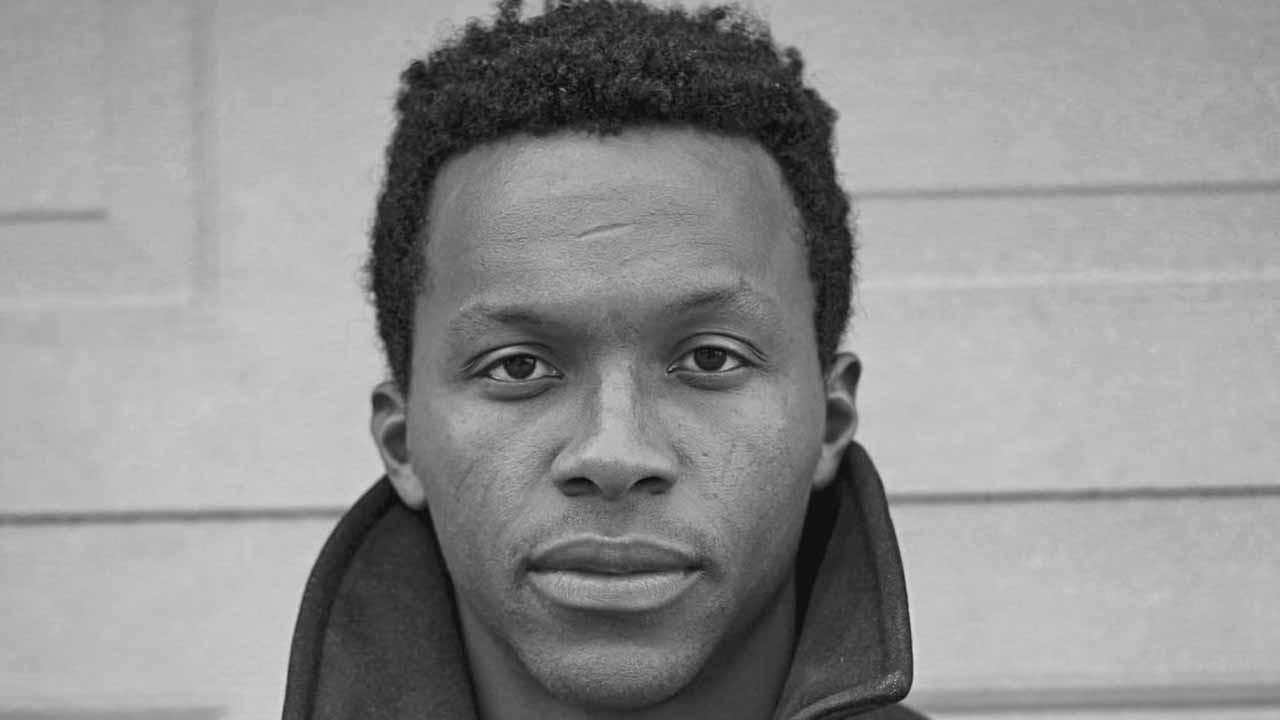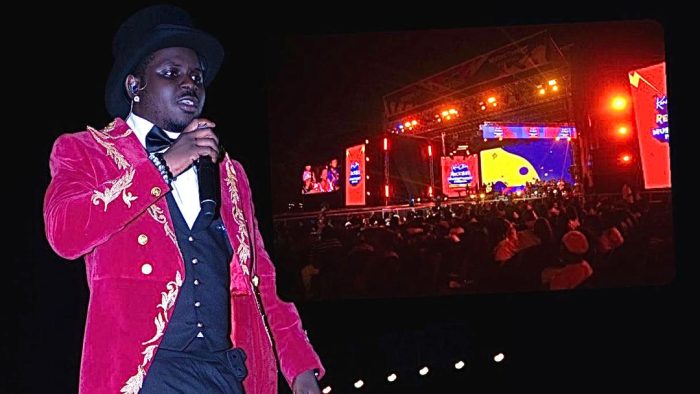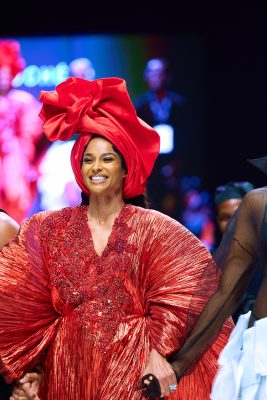
Africa runs through the veins of Emmanuel Kabongo. His Africanness sticks out like a thumb. But he has only been home once in the last two decades.You don’t need to see him draped in danshiki or kente, neither do you need to see him empty bowls of Saka Saka or Pondu, Mossaka or Fumbwa, popular Congolese cousines, Africa is culturally significant to the actor.
“I’m not an American. My look is not American, but I don’t have a strong African accent,” Emmanuel chuckles. “But my goal is to tell African stories whether in North America or Africa — Nigeria, Ghana, Ethiopia, Kenya, South Africa.”
Emmanuel is hot on screen and has starred in a lot of films made in Toronto. Since he made his debut, he has gone on to become one of the indispensable fixtures of the film culture in the North American country. Some of his credits include: a romantic lead role in Brown Girl In The Ring: The Prequel by Sharon Lewis; a supporting role in Antibirth (Sundance 2016 Official Selection) directed by Danny Perez, produced by Natasha Lyonne; another lead role in The Animal Project (TIFF 2013 Official Selection) directed by Ingrid Veninger and a supporting role in the feature film, Pompeii, directed by Paul WS Anderson, which also stars Adewale Akinnuoye-Agbaje.
[ad]
In 2016, Emmanuel was cast as a lead in the Netflix show, 21 Thunder, filmed in Montreal Canada, while in 2017, he was cast in CBC’s Frankie Drake as a recurring character and returned on the show for season 3, last year. Emmanuel says he began watching films from Nigeria and Ghana in his early age. “They’ve come a long way and have continued to improve,” he says. Films from the two countries are “at par with America in terms of quality of work and the stories are relatable with what people are facing in the world.”
If you are availed the opportunity, will Nollywood be a good attraction?
“I want to be involved in Nollywood,” he says, with aplomb.
Born in Lubumbashi, Democratic Republic of Congo, in the 80s, Emmanuel is the first born of his parents’ six children, five boys and a girl. “Only one of my siblings was born in Toronto, but the rest of us were born in Congo,” he enthuses. “The civil war only allowed me to live there for six years. My parents wanted a better life for us and decided we moved to North America. My father, at that time, was involved in construction and the import/export business. My mother was a secretary in a tennis clothing company, but also stayed at home to watch the children.”
The choice to leave Congo, Emmanuel says, “wasn’t only because of the civil war, my father’s life was in danger as well. At that time, my mother was also pregnant with her fifth child. We snuck out of Congo by driving to Zambia, and catching a flight to South Africa.” They landed in Johannesburg in 1993, and stayed with a friend of his father. After a week, his father left for New York, hoping to use his connection to get visas for every member of the family.
“The rest of us waited in South Africa, and ended up moving in with an aunt. After a few months, it was time for my mother to give birth to a new child, but the baby didn’t make it. After the loss of a sibling, our aunt decided she couldn’t keep us at her place anymore, so, we had to move out. My mother had made some Congolese friends, and one of them was willing to help us out. This friend of my mother let us stay with her and her five kids.”He says, “we began going to a church and tried to integrate. Because we didn’t speak English and didn’t have enough money, we didn’t go to school for the first year in South Africa. My father was doing all he could to bring us to Toronto, but his credentials were not sufficient enough to get him a job in his field, so he worked at multiple jobs while also going back to school.”
[ad]
The house where they lived was not safe, as there were a lot of drug users and dealers, crooks, pimps and prostitutes. “What kept us all safe was our mother. She always made sure to be on us about everything. So, we had to watch one another’s backs. She made sure we travelled together wherever we went, and each Sunday after church we would go to the park together and have a family picnic,” he sighs.
After five years living in Johannesburg, the much-anticipated moment finally came. His father was able to get visas for the family. “We were so excited to finally leave,” he reveals. He adds, “at the age of 13, I joined the neighbourhood basketball team at the centre because no one really shared the same passion for soccer like myself and my siblings. I grew up watching television all the time, so, at the age of 15, I told my father that I wanted to try acting since he knew about it based on the photos he would send my mother of him on a movie set. Little did I know that my father was a background actor.”
Being a background performer was to earn him some extra money, which he sent to his family that was stuck in South Africa. “Seeing that he was really intrigued, he brought me to the background acting agent he used to work with,” he says. “The first movie I did background for was the film, Mean Girls. I was so excited to be on this set, not knowing who was a part of it, that I still tried really hard to get noticed. They were filming a scene that included a big crowd running into a theatre. I was part of this running crowd that had to pass the camera positioned right at the entrance of this theatre. At every chance I had to pass the camera on each take, I would look into the lens and wave. The directors of the film got so upset with me, they sent me to the back of the crowd.”
IN college, he played on the men’s varsity basketball team for three years. Each year, he enrolled in a general one-year programme because he didn’t know what profession he wanted to focus on.“I was pretty tall for a 16-year old in high school but didn’t grow as tall as my younger siblings when I got to college. I later found out that I had scoliosis, which took away three inches of my height. This was a gift in disguise because it brought him back to acting,” Emmanuel explains. “All I knew was that I wanted to have a basketball career overseas, hoping I was good enough.”
According to the actor, “in my family, three of my siblings on the other hand, had completely different outcomes with their basketball journeys. For example, my sister played at a high level in Canada and ended up receiving a full basketball scholarship at the University of Delaware. My brother after my sister, ended up playing at a really high level in the United States, and received a full scholarship to the University of Texas, and also played in the NBA. The last born of my siblings, who is also the tallest, played at a high level of basketball in the United States as well, and received a full scholarship to attend the University of Virginia Tech. As for me, I too wanted to make my parents proud.”
[ad]
He attended college in Toronto where he studied theatre and played on the varsity basketball team. Outside of school, Emmanuel began taking workshops for acting in film and television. At the end of the school year, he was cast in his first student film, and was also recruited to attend a Canadian university on a basketball scholarship. Because of his tremendous passion for his new craft, he turned down the basketball scholarship to pursue an acting career instead.
It was in his third year that he finally decided to sign up for a one-year acting programme at the college he attended. “Since I wasn’t as tall and skilled as my siblings, I decided to try something that was always in the back of mind. The program became the answer to my question about how to be an actor that speaks in projects. This theatre programme taught me the basics, like how to gain experience, about headshots, building resumes, how to get an agent, body movement classes, and performing components of different plays.”
A fellow student in his class advised him to begin taking acting workshops for film and television, if that’s what he wanted to focus on. “I took his advice and began studying with a very good acting coach, while still enrolled in the theatre programme, and continuing to play on the basketball team. At the end of my school year and basketball season, I began getting scouted by a coach from a university in Canada.”
After gaining more confidence, he started looking for an agent and got my first one. Through this agent, he was able to land his first big show called Breakout.
After a while, it was time to improve his representation, so, he signed on with a new agent. “This new agent didn’t take me on right away, though. He felt I was still very green, so, to prove him wrong I worked very hard and continued searching for my own work,” he says. “This show changed a lot of things for me, gaining popularity worldwide, it placed me in a position where the industry started taking me seriously. Since then, I’ve travelled to London, Budapest, Newfoundland and Los Angeles for work. In 2018, I got to travel back to Congo after 20 years, where I got to meet my grandmother and other family members for the very first time. I got to see and experience where I am from.”
The artiste says the visit gave him a new perspective and wisdom. “My career isn’t just for me, it’s bigger than me and for as long as I breathe, and I will always do my best.”Emmanuel, who now lives in Los Angeles, where he has continued to pursue the stars, received the Brian Linehan Charitable Foundation scholarship and completed the Actors Conservatory at the Canadian Film Centre in 2015.
[ad]
Acknowledged many times over for his acting prowess, he won the Best Actor Award at the African Entertainment Awards in 2013 and was nominated for the Best Actor Award at the Black Canadian Awards in 2014 and 2015. He won the 2015 Bravo Fact grant award to produce and star in his short film, A Man’s Story.
Emmanuel was the recipient of the 2016 Classical Theatre Project Actor’s Conservatory scholarship, and also, in 2016, he was nominated for a Canadian Screen Award for Best Performance in a Programme or Series Produced for Digital Media. In 2017, he was nominated for the Best Male Performance In a Web Series at the International Academy of Web Television Awards and later; he received the Rising Star Award, at the Excellence Awards in Toronto.
What does he consider a successful film career?
“It means doing what directors, producers and fellow actors appreciate,” he says. Emmanuel continues, “to be a beacon of light. As long as my work helps in touching people’s lives, I know I’m doing what is right and I’m a success.”Clearly, he wants to be seen more in flicks from the continent. The trajectory of his career seems to suggest that he will get. But maybe not soon.
[ad]








